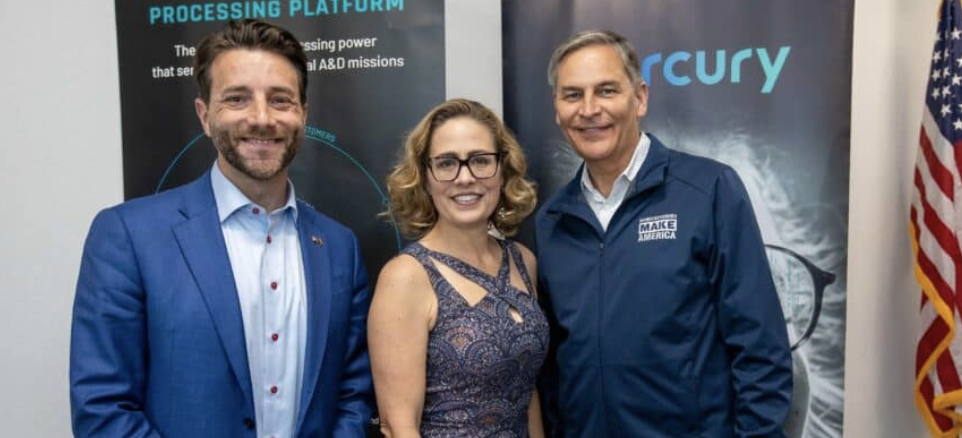The Arizona Chamber of Commerce & Industry and National Association of Manufacturers (NAM) welcomed Sen. Kyrsten Sinema, I-Ariz., as their guest at a roundtable discussion hosted at Mercury Systems to address the persisting workforce challenges faced by the manufacturing sector. Participants explored solutions that would enable Arizona manufacturers to remain competitive.
Attendees included representatives from Intel and Arizona State University.
Sinema emphasized the significance of border and immigration policy in bridging the gap between the workforce shortages and manufacturing excellence.
In a recent press release, Sinema acknowledged the labor shortage in some sectors and expressed support for the H-2B visa program, which helps alleviate the labor crunch in industries whose growth has been constrained by an inability to find skilled workers.
“As I travel across Arizona, I hear from employers of all sizes about the challenges they face filling jobs – this is especially true in the manufacturing sector. That is why I’ve been hard at work identifying realistic solutions,” Sinema said.
Sinema has organized an immigration and border coalition that includes members of both parties in the House and Senate, such as southern Arizona Rep. Juan Ciscomani, R.
Sinema proposed bipartisan legislation with Republican North Carolina Sen. Thom Tillis to reform the employment visa system and ensure the country’s global competitiveness. The proposal would fuel investments in Border Patrol Agents, U.S. Customs and Border Protection (CBP) Office of Field Operations Officers, and modernize the asylum system. It would also establish a pathway for legal citizenship for approximately 2 million Dreamers who were brought to the U.S. when they were children.
Jay Timmons, president and CEO of the National Association of Manufacturers, stressed the need for a functioning immigration system that addresses economic needs, as well as security and humanitarian concerns. He mentioned that the “current broken system harms manufacturers’ competitiveness and is preventing them from filling nearly 700,000 open jobs in the manufacturing industry.”
Mercury President and General Manager of Microsystems Tom Smelker expressed the need for a faster mechanism to attract and retain more skilled labor talent in the U.S.
Infrastructure, CHIPS
NAM and the Chamber supported Sinema’s bipartisan infrastructure law, which puts skilled Arizonans to work building rail lines, roads, bridges, and modernizing the state and country’s infrastructure.
Sinema last year met with NAM and the Chamber to discuss how her bipartisan Chips and Science law positions Arizona to lead the next phase of American innovation and manufacturing. The Chips and Science law provides more than $52 billion to boost domestic semiconductor manufacturing, reduce reliance on foreign countries like China, and enhance the United States’ global competitiveness.
















Add comment